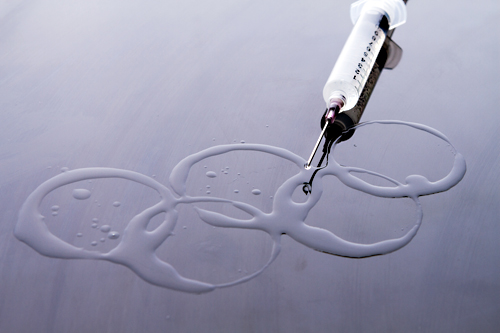Watching world-class athletes race, throw, jump and hurdle their way onto the Olympic team at the U.S. track and field trials in Eugene last month, I felt the excitement of the London games begin to creep up on me. As their chiseled, impeccably trained bodies reached astounding speeds and heights, I stood in awe at what the human body can achieve when trained into submission.
The road to the Olympics

Watching world-class athletes race, throw, jump and hurdle their way onto the Olympic team at the U.S. track and field trials in Eugene last month, I felt the excitement of the London games begin to creep up on me. As their chiseled, impeccably trained bodies reached astounding speeds and heights, I stood in awe at what the human body can achieve when trained into submission.
I noticed, though, that mixed with this appreciation was an equal amount of skepticism: I wondered after every standout performance whether or not we would later find out the athlete had failed a drug test.
Then, on the heels of the meet, the U.S. Anti-Doping Agency announced it would formally file charges against Lance Armstrong, the legendary seven-time winner of the famed Tour de France cycling race.
Armstrong has long been under suspicion for his seemingly superhuman achievements, but he and the others on his team facing charges have always maintained their innocence. But then, don’t they all?
It’s always the same scenario: The accused steadfastly protest their innocence to the bitter end. Marion Jones, Barry Bonds, Mark McGwire and the guy who brought it all to the forefront, Ben Johnson, all maintained that doping claims lacked a single shred of truth. It was the media or jealous conspirators wanting to bring them down. Then, faced with indisputable evidence, they were predictably reduced to tears, begging for our forgiveness as their titles were stripped away.
Armstrong is innocent until proven guilty, but as the USADA gets ready to reveal its findings— which they say are “fully consistent” with doping—and as the cyclist defiantly tweets his innocence, it feels awfully like déjà vu.
This is what sports has been reduced to. Gone are the days where endurance, discipline and raw talent were what took athletes to the heights of success. Now it’s “how far am I willing to go to win?” It’s almost a given that athletes are on some type of performance-enhancing drug. In fact, a poll taken by the Sacred Heart University Polling Institute shows Americans believe that more than 34 percent of all professional athletes nationwide use these drugs.
And that’s just professional sports. There are ever-growing numbers of collegiate athletes using banned substances and, even worse, there are now calls for monitoring such usage in high schools.
We shouldn’t be surprised. Why wouldn’t young, aspiring sportsmen and women want to emulate their role models? After all, if in the final analysis the goal is to win, the obvious implication is to do whatever it takes. You’ve probably seen the video of the youth ice hockey coach tripping one of the opposing team’s kids after his team lost. Talk about starting them early.
When the goal is no longer the pure joy of competing, the thrill of being excellent at what you do, and it’s instead just about winning, this kind of behavior will never end.
The Olympics are supposed to be about competing on behalf of your country, standing on top of the podium as your flag rises to the swelling of the national anthem. Yet every time an athlete like Marion Jones stood there, glowing in victory, it was a farce. Her opponents, who’d trained their whole lives for that one moment of glory, were robbed because she was only as good as the drugs she took.
Back to Armstrong: If he is indeed found guilty, I hope every time he sees a yellow bracelet he’ll think of the millions of young fans who once believed he was superman and who will have to accept that, really, he’s no man at all.



